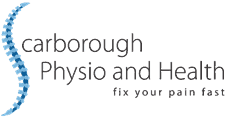Q: “Hi Rachel, I am 54 years old and 3 months ago I had a hysterectomy. Ever since having the kids 20-odd years ago, I have had some heaviness down below especially after doing a long walk along the beach or tending to my garden. But now since the operation, I am feeling a constant heaviness and I feel a bulge especially after I go to the toilet to empty my bowels. I’ve never given the issue much attention, but since the operation, it has really started to bother me. Do you have any advice?”
A: Heaviness or bulging around the vagina is a common symptom of pelvic organ prolapse or POP. It sounds like you may have had a mild prolapse after having the kids but since your surgery, it has become a lot more bothersome.
So what is a prolapse?
POP is the descent of one or more of the pelvic organs (the uterus, the bladder and/or the bowel) into the vagina and is a common issue amongst women, particularly women over the age of 50.
POP occurs due to weakness in the muscles and connective tissue that support the pelvic organs in their normal position.
Prolapses do vary in their severity. More severe prolapses (where the organ is coming outside the body) often require surgery. The mild and moderate prolapses are often managed quite well with advice and specific exercise.
So here are a few tips to help you!
First of all: Get your bowels working!
Constipation can be quite common after having an operation because of reduced activity and taking strong pain killers. So try and keep your motions soft and easy to pass by eating plenty of fibre, drinking plenty of water and doing some low-impact exercise (like walking or swimming).
When sitting on the toilet: lean right forward resting your elbows on your knees and “push” by bulging your tummy out rather than bearing down.
Secondly: Get your pelvic floor muscles working!
The Continence Foundation of Australia has some great resources to help you get started with some pelvic floor exercises.
Check out their website at:
www.continence.org.au
You will also likely need an individual assessment by a Continence specialist (Continence nurse advisor or Continence physio) to tailor the exercises to suit your needs.
Thirdly: Ease the strain on your prolapse! [list type=”icon-arrow”]
- Limit your lifting to less than 10 kg (be careful when moving your vacuum cleaner, carry half a basket of washing)
- Limit excessive pushing/pulling (eg lighten up your trolley at the supermarket; get a neighbour to help mow your lawn)
- Avoid bending at the hips or squatting. Instead try lunging to the ground.
- Put your feet up for 30 minutes in the afternoon to help ease some of the heaviness sensation. [/list]
Fourthly: Stay active!
General exercise is very important to keep good muscle tone in your whole body including your pelvic floor and it can help reduce any excess weight that could be increasing the strain on your prolapse. Try to do some regular walking, swimming or cycling – something that is gentle on your body. Avoid any high impact exercise (jogging, running, bouncing, heavy weights, sit ups) as this may worsen your prolapse.
And finally:
Have a chat to your GP ! [list type=”icon-arrow”]
- You may be a good candidate for some local estrogen replacement therapy, which can help strengthen up your vaginal walls.
- They can refer you onto a dietician for weight loss as required
- They can help get your respiratory or hayfever illnesses under control. [/list]
Good luck!
For more information on POP and pelvic floor problems, call Scarborough Physio and Health on 3880 1649.
Alternatively: Contact Us Here
Rachel Hollingworth (BPhty, CFAM) is a Women’s Health and Continence Physiotherapist at Scarborough Physio and Health. Rachel is committed to increasing community awareness about pelvic floor dysfunction and is an expert in the treatment of many different pelvic floor conditions.

I’ve been through hell my Dr today said I have prolaspe after hysterectomy and ovaries out in 2007 .ridiculous I’m only told this now .it was done I mullingar hospital maybe they dud damage .I’m now incontinence and my life is ruled by been near a toilets. I’m furious .I’m only 63